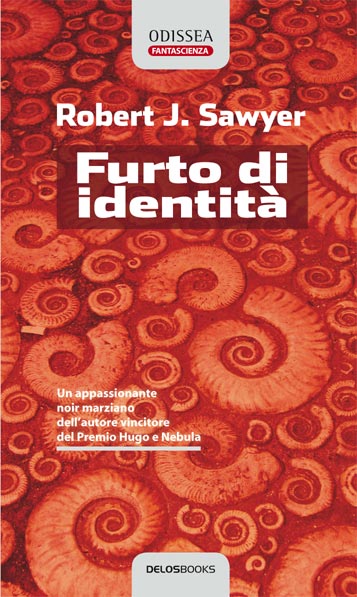
In Vancouver today, the science-fiction convention VCon 31 begins. Fan Guest of Honour is my great friend Randy McCharles. I wrote the tribute to him for the convention's program book (and will also be conducting the Guest of Honour interview with him on Saturday afternoon). Here's the tribute:
===
These days, the only ethnic jokes that can be made with impunity are those about one's own group. Randy McCharles likes to portray himself as being thrifty, and often underscores this by saying, "I'm Scottish," as if a certain parsimony was bred in his bones.
It's true that Randy likes to get value for his money: he loves salt-and-pepper chicken wings, and can tell you which Calgary pubs have them cheap on which nights of the week. (Still, he expects quality; I was with him recently when he lamented, "These aren't really fifteen-cent wings; they're more like nine-cent wings.") But all of his apparent cheapness hides an incredible generosity of spirit. I have never seen Randy fail to provide a lift to someone, no matter how far out of his way it took him, and he's always there to help a friend. When my travels have brought me to Calgary, Randy has often put me up at his immaculate townhouse; at times, it's been quite the hotel for writers, with three or four of us crashing simultaneously at
Chez McCharles. Randy likes to talk about his investments. Income trusts were recently quite good to him, and I heard him saying, while eating the aforementioned nine-cent-quality wings, that his portfolio had gone up 28% in the last year. But it's all to a noble purpose. Randy is a committed and very talented fantasy writer, but he has the good sense to know that for all but a lucky few, writing doesn't pay well. He's looking forward to retiring in his fifties -- not that far off now -- with enough money to support himself for decades to come once he switches to full-time writing, working on the novels and linked short stories that he's been tinkering with for years.
I first met Randell McCharles in 1996. Back then, and until quite recently, he was vice-president of Calgary's Imaginative Fiction Writers' Association (IFWA), a spirited writers' group. That organization decided they wanted to bring a pro in to facilitate an intensive two-day session for them, and they picked me for what became the first of an annual series of workshops. Randy was one of the participants, and I quickly noted his self-deprecating humour, incisive mind, and easygoing nature. Others note different things about him: over the years, I've seen many a woman in his writers' group swoon over his craggy good looks, his leonine mane -- now, 'tis true, touched with silver -- and his spiffy, brightly coloured shirts.
It's hard to overstate how big a part of Randy's life IFWA is -- and not just because he met his lovely girlfriend Val (who also participated in that 1996 workshop) there. Last Christmas, Val gave Randy a unique and wonderful gift: a one-of-a-kind "Women of IFWA" calendar she'd made, with the heads of female IFWits (for so they are known) Photoshopped onto the hot bods of women painted by Boris Vallejo.
Randy loves science fiction and fantasy television, and is constantly taping episodes, which he eventually gets around to watching -- but, maddeningly, he never labels the tapes. I wanted to see the first episode of the new version of
The Night Stalker, which Randy had recorded -- but the only way to find it would have been to look at each cassette in turn.
Still, during my visits, I've watched far more than my share of really bad SF films on Randy's 52-inch widescreen TV (he was an early adopter -- the first person I knew to actually own such a thing).
His desire to get value for money continues here: even if a movie or TV show was shot in the traditional 4:3 aspect ratio, Randy insists that we endure it in 16:9 widescreen format, giving everyone elongated heads, and making the Death Star look rather like a watermelon. Anything else, he says, would be wasting resources -- unused screen real estate is unacceptable to him. (Some of this odd approach to displays may come from Randy's day job: he is an inventor and designer for SMART Technologies, a manufacturer of innovative electronic white boards, another medium that values making full use of flat surfaces.)
Of course, Randy's thrift is part of what makes him such a good convention organizer. He watches every penny, and can stretch a dollar as easily as he stretches an onscreen head. In fact, the only sign of disarray in his home is in the dining room, where a huge collection of convention art boards is stacked against one wall, a $20 bargain at a con auction he couldn't pass up, stored now in his home for future use.
Science-fiction fandom is notoriously political, but Randy manages to stay above such things, focusing on nothing but the job at hand. He's the very embodiment of the term SMOF -- Secret Master of Fandom; few of those around him know just how far-ranging his influence is. He brought Westercon to Calgary in 2005, and will be chairing the World Fantasy Convention in that city in 2008. On top of his duties for many years with IFWA, he's also often been involved in helping to run Con-Version, Calgary's annual convention. And so it's fully appropriate that V-Con honour this man -- one of Canada's most giving and hardest-working fans -- as its 2006 Fan Guest of Honour.
I myself have been a past V-Con Guest of Honour, so I know that the usual perk is to be flown from one's home city (indeed, I shared the same flight with Lloyd and Yvonne Penney who were the Fan GoHs the year I was Writer GoH). But our Mr. McCharles likes saving money for other people, as well as himself, and he volunteered to do the fifteen-hour drive from Calgary to Vancouver instead. If he looks a little sleep-deprived just now, that's why.
If you're looking for Randy during the con, try the con suite -- where the munchies are free. If he does venture out of the hotel for a meal, it'll be to somewhere inexpensive, ideally serving cheap wings. "I'm Scottish," he'll say again, with his disarming grin.
Maybe. But I think the more appropriate adjective is "fannish." Randy McCharles is one of us, and I'm proud to call him one of my very best friends.
Labels: Appreciations, Randy McCharles














